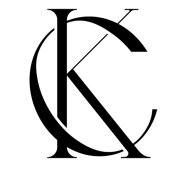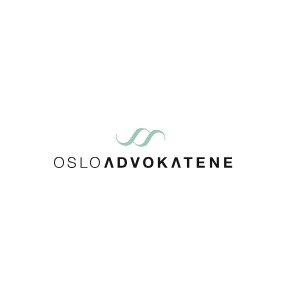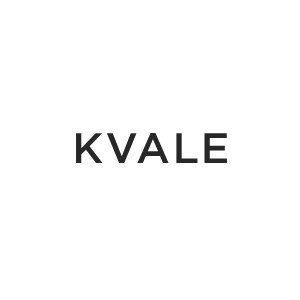Best Debt & Collection Lawyers in Oslo
Share your needs with us, get contacted by law firms.
Free. Takes 2 min.
List of the best lawyers in Oslo, Norway
About Debt & Collection Law in Oslo, Norway
Debt and collection law in Oslo, Norway, governs the process of recovering outstanding debts. This includes the legal measures that creditors can take to collect money owed to them and the rights and protections afforded to debtors. In Oslo, as in the rest of Norway, the laws are designed to balance the interests of creditors and debtors, ensuring fair treatment for both parties. Key elements of these laws include regulations on debt collection practices, the role of debt collection agencies, and the legal recourse available to creditors and debtors.
Why You May Need a Lawyer
There are several common situations where individuals or businesses may require legal assistance in the field of debt and collection. These include:
- Unpaid Debts: When a creditor is unable to collect payments from a debtor, legal intervention may be necessary.
- Debt Disputes: Disagreements over the amount owed or the validity of the debt can require legal expertise for resolution.
- Debt Settlement Negotiations: A lawyer can negotiate on your behalf to settle debts for a lower amount or restructure repayment terms.
- Bankruptcy Proceedings: If insolvency leads to bankruptcy, legal advice can help navigate the process.
- Illegal Collection Practices: Debtors subjected to harassment or illegal collection practices may need legal support to defend their rights.
Local Laws Overview
The local laws relevant to debt and collection in Oslo include several key statutes and regulations:
- Debt Collection Act (Inkassoloven): This law sets out the rules for the collection of debts, including the behavior and practices of debt collectors.
- Financial Contracts Act (Finansavtaleloven): Protects consumers in financial agreements, including transparency and fairness in loan agreements.
- Payment Deadlines and Recovery Act: Dictates the time frames within which debts must be paid and the procedures for recovery of outstanding amounts.
- Bankruptcy Act (Konkursloven): Governs the procedures and rules for declaring bankruptcy in cases of insolvency.
Frequently Asked Questions
1. What should I do if I receive a debt collection notice?
Respond promptly to the notice, request verification of the debt, and consult with a lawyer if you believe the debt is incorrect or need assistance.
2. Can debt collectors contact me at any time?
No, debt collectors must adhere to strict rules regarding when and how they can contact you. Harassment or contacting at unreasonable hours is prohibited.
3. Are there charges for debt collection services?
Yes, debt collection agencies typically charge fees, which can be passed on to the debtor. These fees must be reasonable and are regulated by law.
4. Can I be imprisoned for not paying my debts?
No, imprisonment for debt is not allowed. However, failing to pay your debts can lead to other legal consequences such as wage garnishments or a court judgment against you.
5. What are my rights if I dispute a debt?
If you dispute a debt, you have the right to request verification and documentation from the creditor or debt collector. The debt collection process must pause until the dispute is resolved.
6. How can I negotiate a debt settlement?
You can negotiate directly with your creditor or seek the assistance of a lawyer to help negotiate a debt settlement or payment plan that is manageable for you.
7. What happens if I ignore debt collection efforts?
Ignoring debt collection efforts can lead to legal action, such as a court judgment, which can result in wage garnishment or seizure of assets.
8. What is the statute of limitations for debt collection in Norway?
The statute of limitations for collecting a debt in Norway is generally three years from the date the debt became due. This period can be extended under certain conditions.
9. Can a debt be sold to another company?
Yes, debts can be sold or assigned to another company. The new owner of the debt must notify you of the transfer and must follow the same legal regulations as the original creditor.
10. What should I do if I am being harassed by a debt collector?
If you are being harassed by a debt collector, document the harassment and report it to the Norwegian Consumer Council (Forbrukerrådet). You may also seek legal assistance to protect your rights.
Additional Resources
For additional assistance and information, consider the following resources:
- The Norwegian Consumer Council (Forbrukerrådet): Offers advice and mediation services for consumer disputes, including debt collection issues.
- The Norwegian National Collection Agency (Statens innkrevingssentral): Handles public debts and provides guidance on repayment plans.
- The Financial Supervisory Authority of Norway (Finanstilsynet): Regulates financial markets and institutions, including debt collection agencies.
- Legal Aid Organizations: Offer free or low-cost legal services to those who qualify based on income and case circumstances.
Next Steps
If you need legal assistance with debt and collection issues, consider taking the following steps:
- Gather all relevant documents, including notices, contracts, and correspondence related to the debt.
- Contact a lawyer who specializes in debt and collection law to discuss your situation and explore your options.
- Utilize resources like the Norwegian Consumer Council for initial advice and mediation services.
- Stay informed about your rights and obligations under Norwegian law to make well-informed decisions.
By understanding your rights and seeking appropriate legal guidance, you can navigate the complexities of debt and collection with greater confidence and security.
Lawzana helps you find the best lawyers and law firms in Oslo through a curated and pre-screened list of qualified legal professionals. Our platform offers rankings and detailed profiles of attorneys and law firms, allowing you to compare based on practice areas, including Debt & Collection, experience, and client feedback.
Each profile includes a description of the firm's areas of practice, client reviews, team members and partners, year of establishment, spoken languages, office locations, contact information, social media presence, and any published articles or resources. Most firms on our platform speak English and are experienced in both local and international legal matters.
Get a quote from top-rated law firms in Oslo, Norway — quickly, securely, and without unnecessary hassle.
Disclaimer:
The information provided on this page is for general informational purposes only and does not constitute legal advice. While we strive to ensure the accuracy and relevance of the content, legal information may change over time, and interpretations of the law can vary. You should always consult with a qualified legal professional for advice specific to your situation.
We disclaim all liability for actions taken or not taken based on the content of this page. If you believe any information is incorrect or outdated, please contact us, and we will review and update it where appropriate.














